Real Estate App Development in Vietnam: Benefits, Features
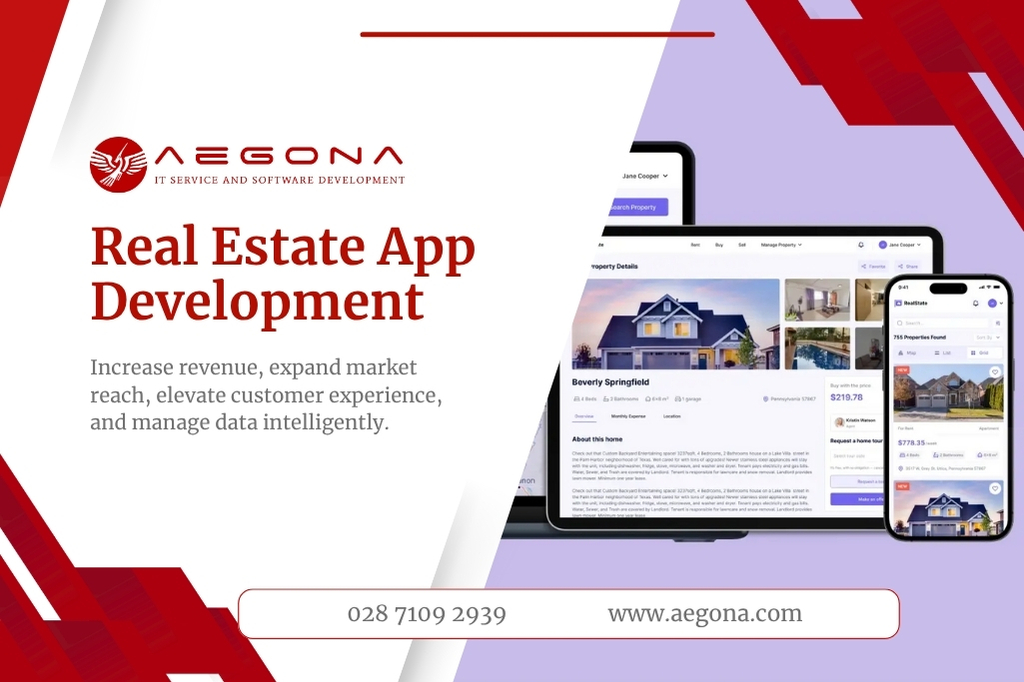
In today’s digital-first landscape, the real estate industry is undergoing a dramatic transformation. Mobile applications are transforming the way buyers, renters, and investors interact with property data. From search to transaction, the process has become faster, smarter, and more personalized.
Developing a real estate app is no longer a luxury—it’s a strategic imperative. In this article, we will explore the definition, business benefits, must-have features, and full development process of a modern real estate app. We'll also compare international market trends to help businesses benchmark their strategies.
1. What Is a Real Estate App?
A real estate app is a mobile or web-based platform that enables users to explore, list, buy, rent, or invest in properties conveniently. Users can browse property photos, pricing, legal details, project milestones, and even schedule visits—right from their smartphones.
Unlike traditional websites, real estate apps leverage technologies like GPS, AI, and AR/VR to offer dynamic features such as:
Personalized property recommendations
Augmented reality virtual tours
Interactive neighborhood insights
Real-time notifications and in-app messaging
These apps not only streamline the user journey but also help businesses manage leads, marketing, and transactions with ease.
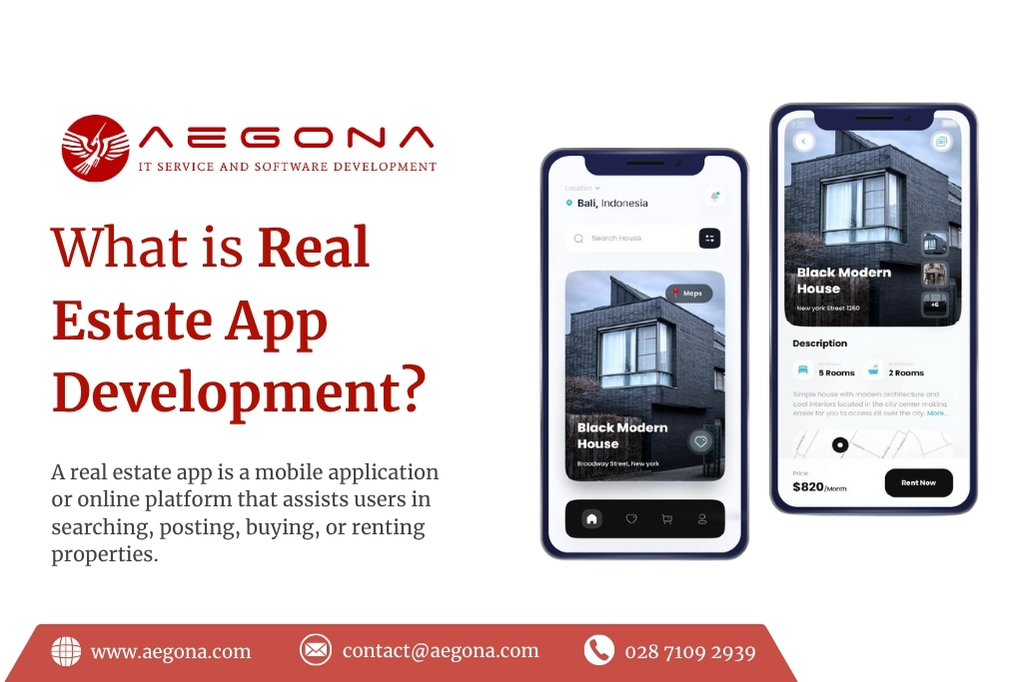
As customer expectations evolve, real estate businesses must build solutions that are mobile-first, intelligent, and scalable.
2. Business Benefits of Real Estate App Development
Building a real estate app offers a multitude of tangible benefits for developers, agencies, and brokerage firms:
Expand Market Reach: Apps help capture high-intent audiences who prefer mobile platforms. You reach digital-native customers actively browsing properties on the go.
Brand Credibility & Differentiation: A professionally designed app reflects innovation and credibility, setting you apart from traditional competitors who still rely on third-party websites.
Lead Generation & Conversion: Push notifications and in-app promotions help businesses convert casual browsers into paying customers through timely engagement.
Data-Driven Marketing: Track user preferences, engagement history, and behavior. These insights allow for personalized marketing campaigns that drive ROI.
Faster Deal Closures: With features like direct messaging, digital contracts, and payment integrations, deals are finalized more quickly—often without physical meetings.
Reduce Operational Costs: Reduce dependency on external listing platforms. With your own app, you manage listings, inquiries, and marketing—all in one centralized system.
Smarter Property Management: Apps equipped with dashboards and admin panels help real estate businesses track inventory, legal documentation, and project timelines efficiently.
3. Popular Types of Real Estate Apps
Real estate apps come in many forms, each serving a unique purpose—whether you're buying, investing, managing properties, or simply exploring the market. Here’s a breakdown of the most widely used categories:
Home Search Apps
Browsing for your dream home has never been easier. Home search apps offer a smooth, scrollable experience like social media, where users can view a vast selection of listings, from studio apartments to luxury villas.
These platforms often go beyond basic property info, offering insights into nearby schools, local amenities, and neighborhood trends, making the decision process more informed and user-friendly.
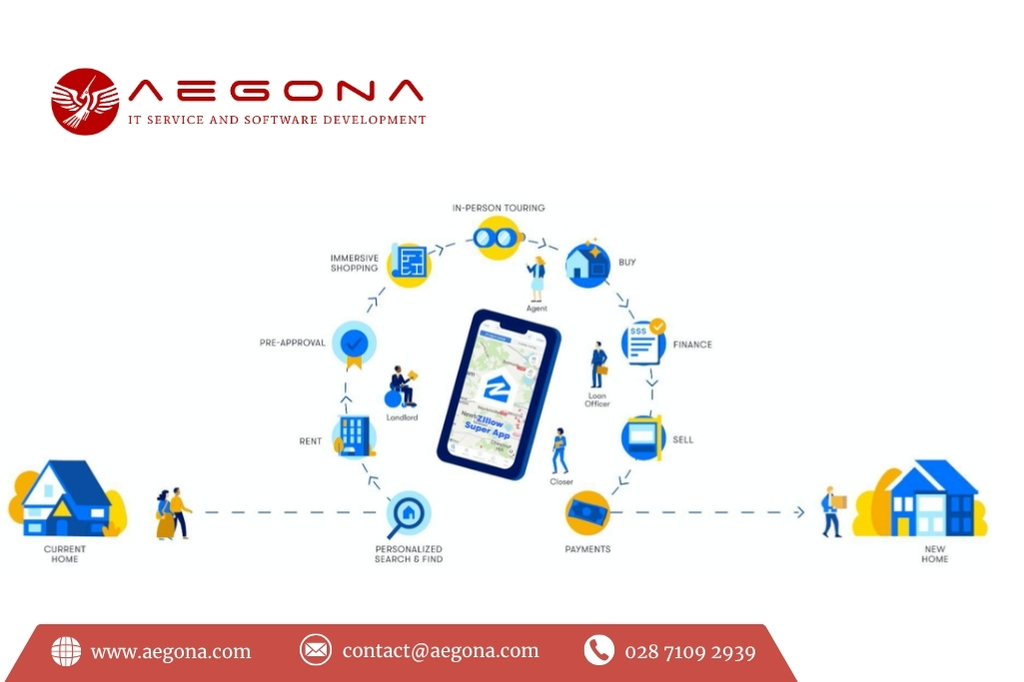
Real Estate Investment Apps
For users interested in building wealth through property, investment apps provide access to real estate markets without the traditional entry barriers. These platforms simplify the investment process—letting users research, compare, and participate in property investments.
A key innovation is fractional ownership, which allows users to invest modest amounts and own a share of a property, earning returns proportionate to their contribution.
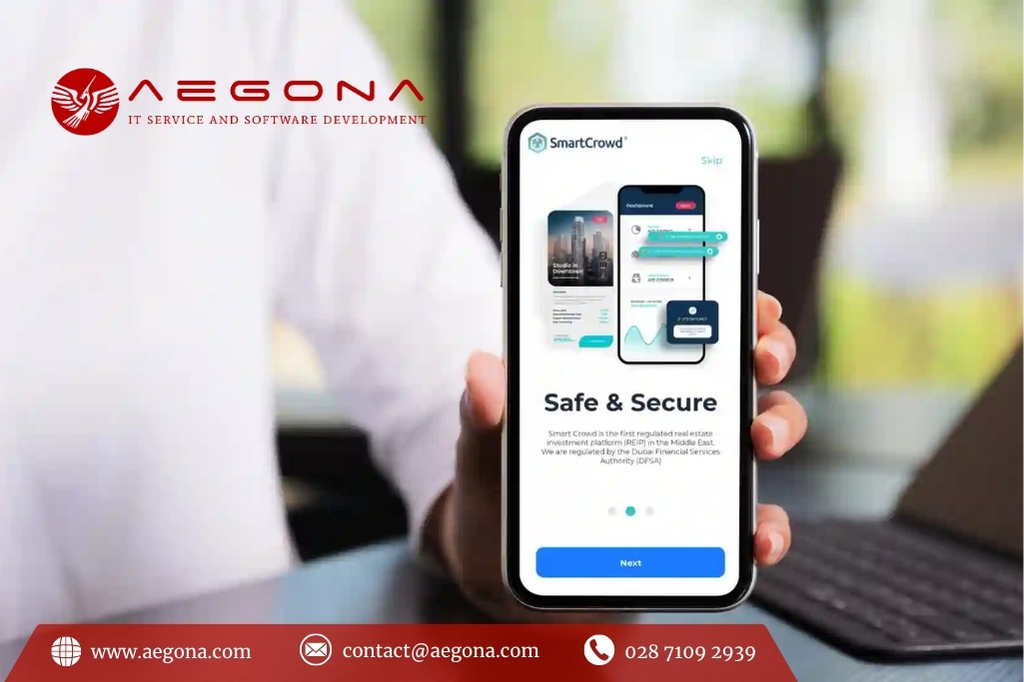
Property Management Apps
Managing several properties at once can be overwhelming, but property management apps function like digital assistants. They enhance transparency and streamline day-to-day tasks between tenants and landlords.
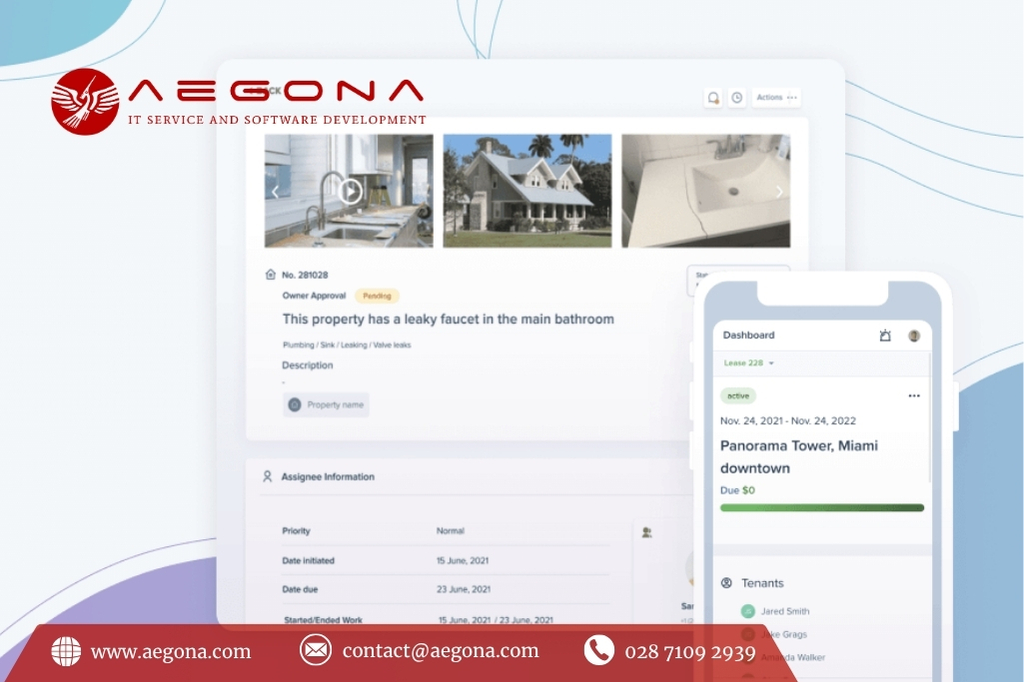
Tenants can submit repair requests, make payments, and access rental agreements through mobile. Meanwhile, landlords benefit from automated rent collection, financial reporting, and tenant communication—all in one dashboard.
These tools allow customization of inputs such as interest rate, and repayment period, delivering instant, accurate projections that support better financial planning.
>>> See more: Mobile App Development Service in Vietnam
3. Key Features of Real Estate App
The success of a real estate app depends on the quality and relevance of its features. Based on global benchmarks and best practices, here are core functionalities to consider:
Smart Property Search Engine
Advanced filters: price, location, size, type (apartment, house, villa), project stage.
Interactive Property Listings
High-resolution photos, 3D floor plans, virtual walkthroughs, and video presentations.
Location Mapping & GPS Integration
View neighborhood data: schools, transit, healthcare, noise levels, and walkability scores.
AI-Based Personalization
Machine learning models that recommend properties based on browsing history and preferences.
In-App Notifications & Updates
Push notifications for price changes, new listings, sales events, or construction progress.
Augmented/Virtual Reality (AR/VR)
Enable virtual home tours and 360° room navigation using AR glasses or mobile.
In-App Messaging & Chatbots
Live chat with realtors and customer support, automated chatbot for FAQs.
Online Booking & E-Signature Integration
Schedule property visits, reserve listings, and sign contracts digitally.
Secure Online Payments
Support for deposits and installment payments via Stripe, PayPal, or local gateways.
Key Features of Real Estate Apps for Enterprises
For enterprise businesses, the following features are crucial to ensure effective management, scalability, and compliance in real estate app development:
Customer Relationship Management (CRM)
Track leads, customer segmentation, follow-ups, and engagement pipeline.
Admin Dashboard
Manage properties, listings, agents, reports, and customer analytics.
Analytics & Heatmaps
Understand which properties get the most attention and identify user behavior patterns.
Multi-language & Multi-currency Support
Essential for companies targeting overseas buyers or investors.
Legal Document Management
Store and manage deeds, contracts, and regulatory documents securely.
>>> See more:
4. Real Estate App Development Process: From Ideation to Launch
At Aegona, we follow a structured 6-step process to develop real estate applications that are scalable, secure, and aligned with your business goals.
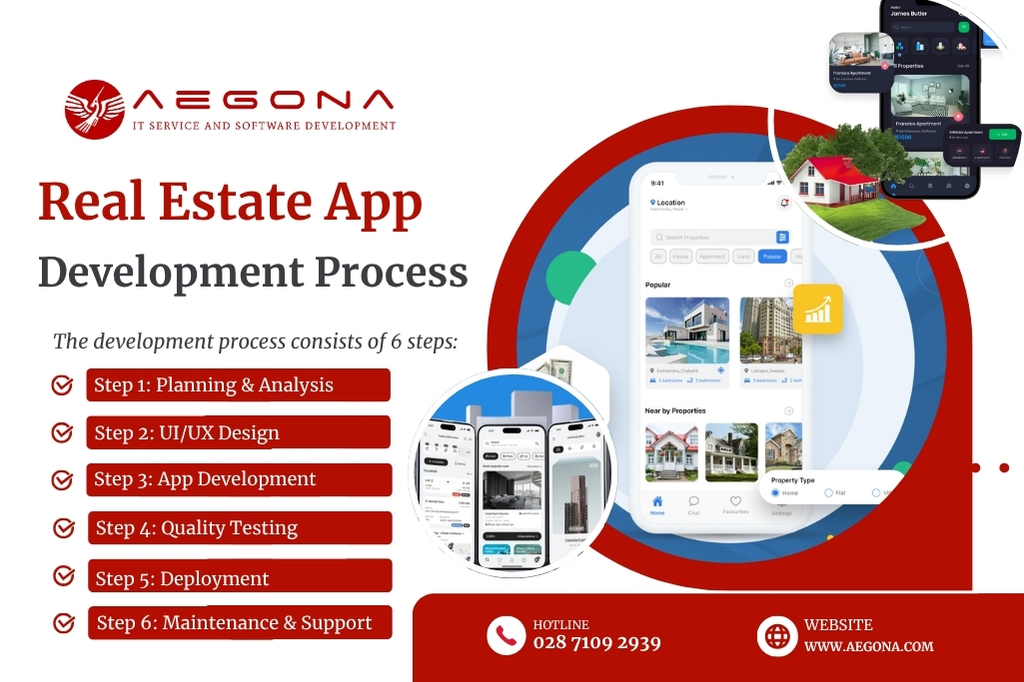
Step 1: Requirement Gathering & Market Research
Define your real estate audience and buyer personas. Analyze competitors, market trends, and choose essential features like property listings, map views, and filters.
Step 2: UX/UI Design
Design intuitive wireframes and user flows for property search, booking, and contact. Ensure mobile usability and visual alignment with your real estate brand.
Step 3: Agile Development
Develop front-end and back-end features such as listing management, user accounts, and agent chat. Integrate maps, CRM, and payment tools if needed.
Step 4: QA & Testing
Test app functions on various devices to ensure smooth search, browsing, and inquiries. Focus on speed, accuracy, and secure data handling.
Step 5: Deployment
Publish the real estate app on App Store and Google Play. Set up secure backend, hosting, and database for listings and user data.
Step 6: Post-Launch Maintenance
Update property data, improve features, fix bugs, and monitor performance. Offer user support and ensure the app grows with market demand.
5. Frequently Asked Questions (FAQs)
How is a real estate app better than a website?
While websites provide broad accessibility, real estate apps offer superior usability and engagement through features tailored to mobile users. Key advantages include:
Real-time push notifications to instantly alert users about new listings, price drops, or updates.
GPS-based search allows users to find properties near their current location.
Personalized recommendations based on browsing history and preferences.
Offline access to previously saved properties and searches.
Direct communication channels, such as in-app chat or call buttons, to connect with agents instantly.
These features deliver a faster, more interactive, and user-centric experience, making apps a more effective tool for real estate engagement.
Should small agencies build a separate app?
Yes, even small and medium-sized real estate agencies can benefit significantly from having their own app. A custom app allows them to:
Retain full control over their branding, listings, and customer touchpoints.
Build customer loyalty by offering exclusive deals or early access to new properties.
Collect valuable user data (e.g., most-viewed properties, search behavior) to inform future marketing campaigns and sales strategies.
With the right features and marketing, a well-designed app can be a game-changer—even for smaller players in the market.
How do I promote and grow app downloads?
Here are proven strategies to drive app visibility and downloads effectively:
App Store Optimization (ASO): Use relevant keywords, compelling descriptions, and eye-catching visuals in app store listings.
Run referral and cashback programs to encourage users to invite friends or share the app.
Integrate app download CTAs into your website, blog, and social media profiles.
Partner with real estate influencers or YouTubers to review and promote your app.
Localize your marketing by adapting campaigns to specific regions, languages, and cultural preferences.
A combination of organic and paid efforts can help your app reach the right audience and steadily increase its user base.
The global real estate industry is moving toward hyper-personalized, data-driven, and mobile-first solutions. Building a feature-rich real estate app is not just about being digital—it’s about being smarter, faster, and more accessible to your audience.
At Aegona, we offer end-to-end app development services tailored to real estate businesses—from UX/UI to enterprise-grade backend solutions. Whether you’re a large property developer or a boutique brokerage firm, we can help you design an app that stands out.
AEGONA LTD — IT SERVICE & SOFTWARE DEVELOPMENT
Email: [email protected]
Hotline: Office: +8428 7109 2939.
Phone: +84914 518 869 | +84869 731 689
Website: www.aegona.co
Address: Orbital Building (QTSC Building 9), Quang Trung Software City, Ho Chi Minh City, Vietnam.
related post
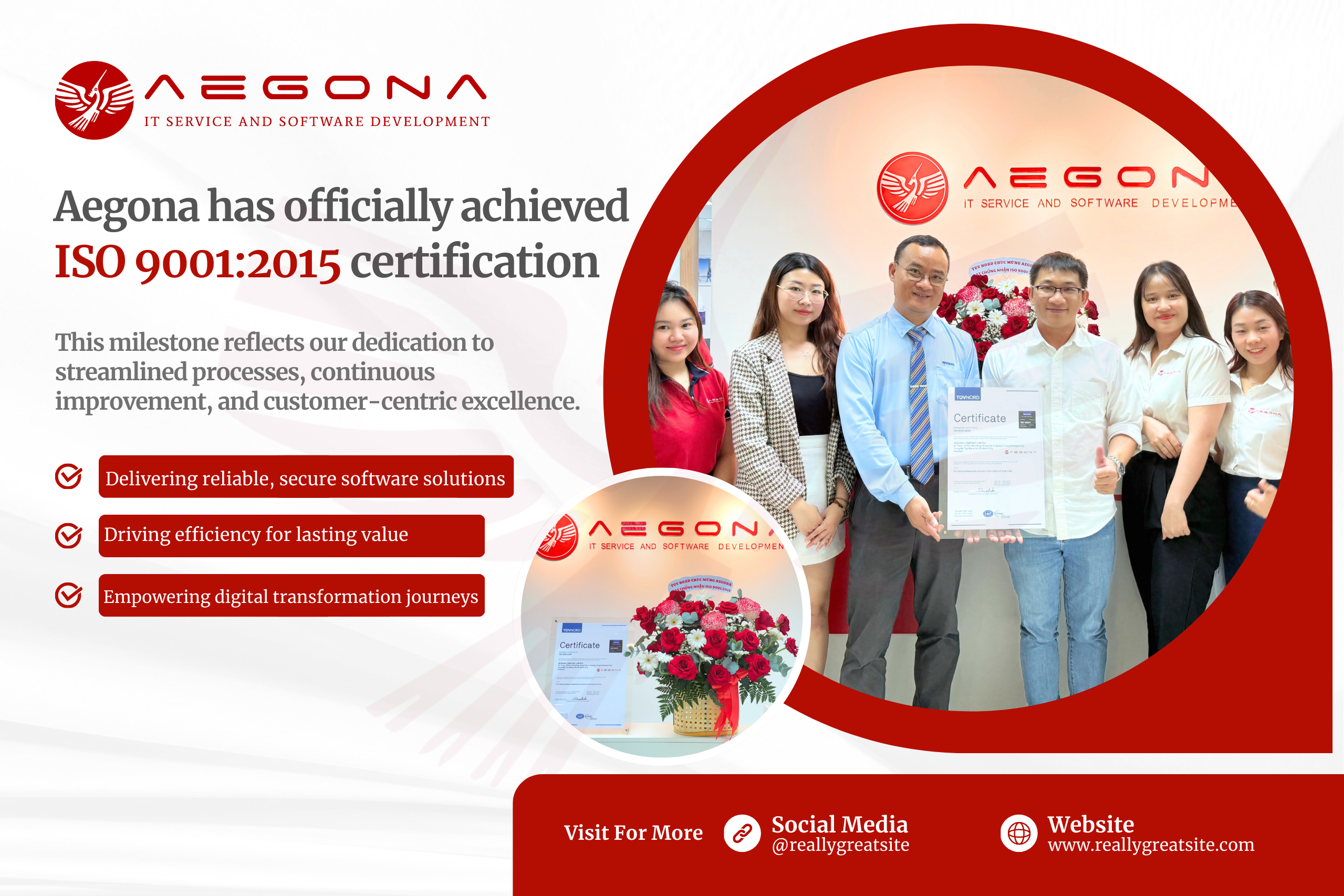
We are proud to announce that Aegona has officially achieved ISO 9001:2015 certification, an internationally recognized standard for quality management systems.

Outsourced IT staff offers a strategic alternative: you get skilled professionals exactly when you need them, without the overhead of permanent hires.
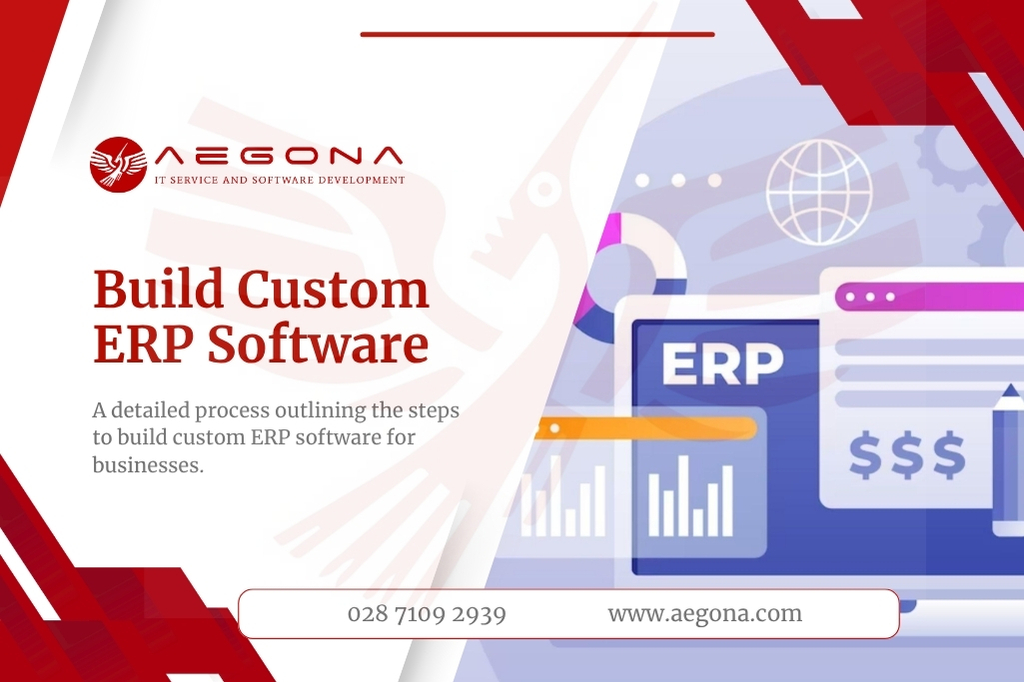
Build custom ERP software to streamline operations, boost efficiency, and fit your business needs. A complete step-by-step guide.
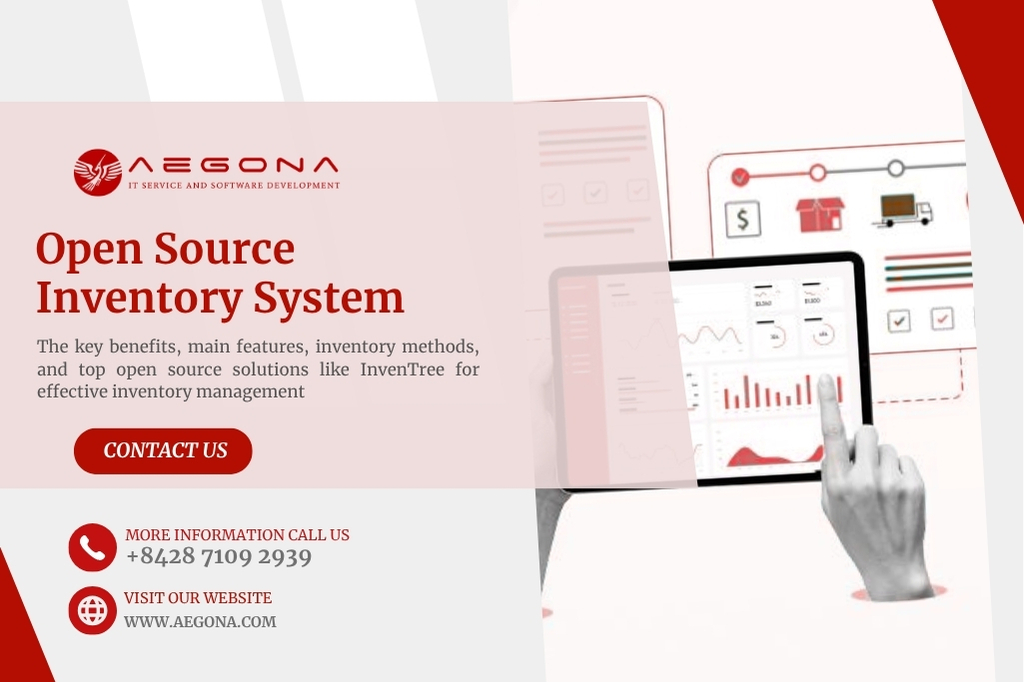
Discover the best open-source inventory systems like InvenTree. Learn key features, benefits, and tools to optimize warehouse and inventory operations.
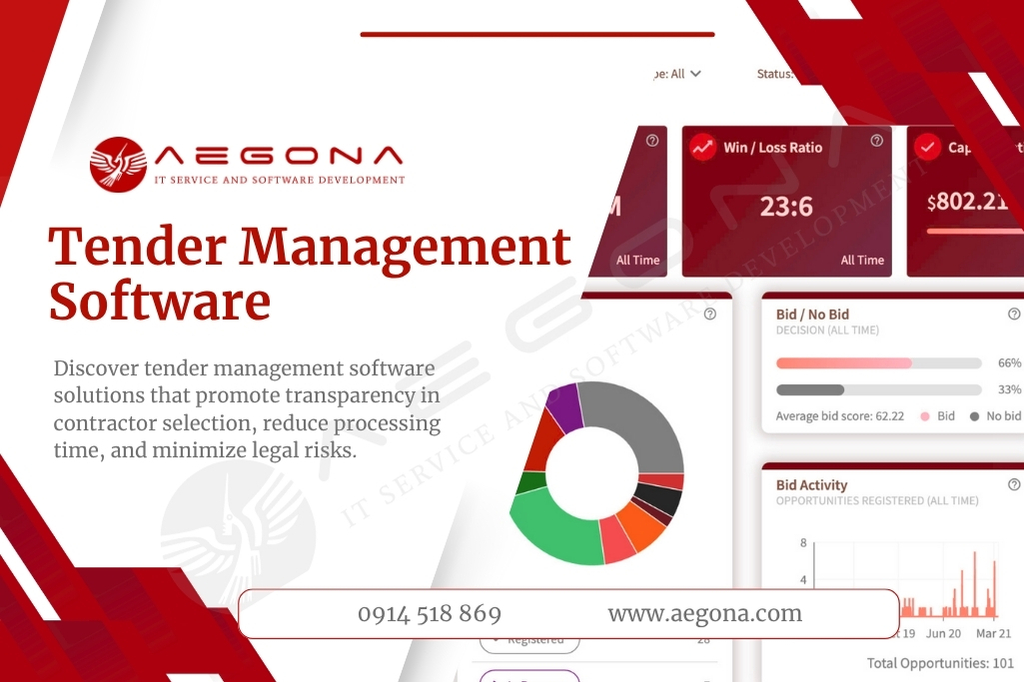
Discover how Tender Management software streamlines bidding, boosts efficiency, and when to choose a custom-built solution.
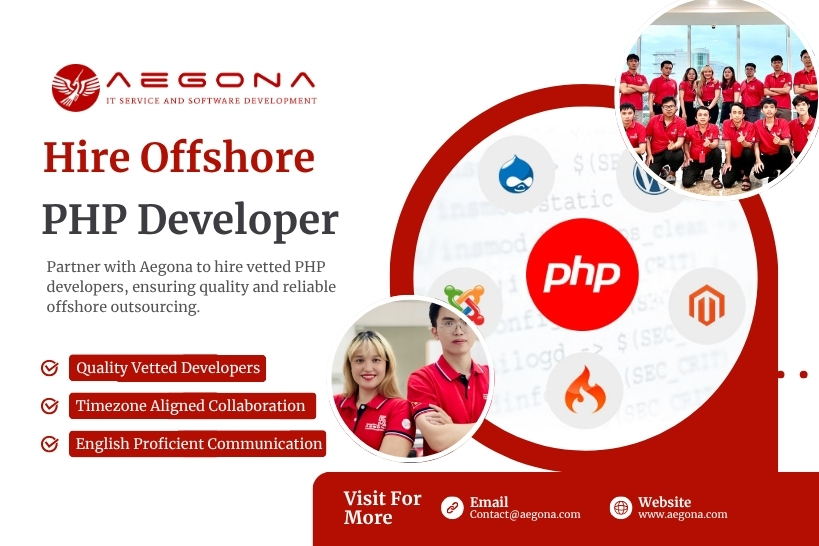
Discover the benefits of hiring offshore PHP developers in Vietnam and explore a step-by-step process to build a skilled, cost-effective development team.
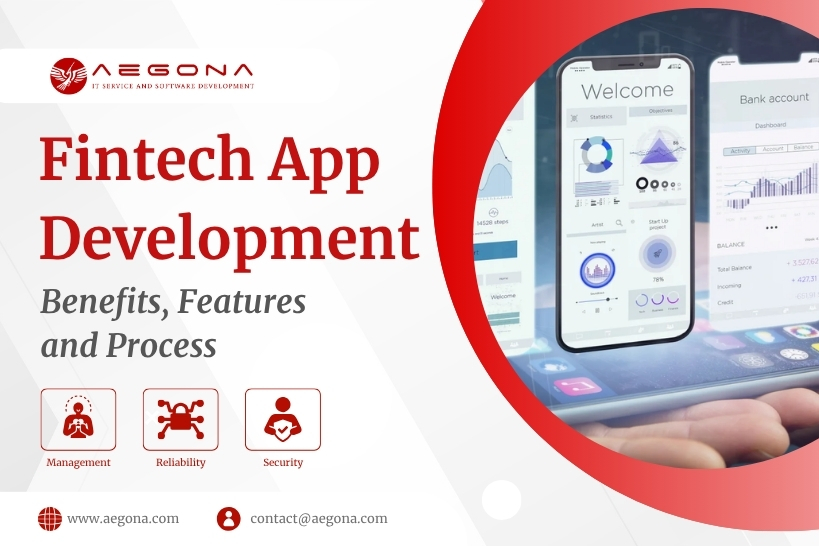
Custom FinTech app development for banking, insurance, payments & more. Secure, scalable, and tailored to your business.
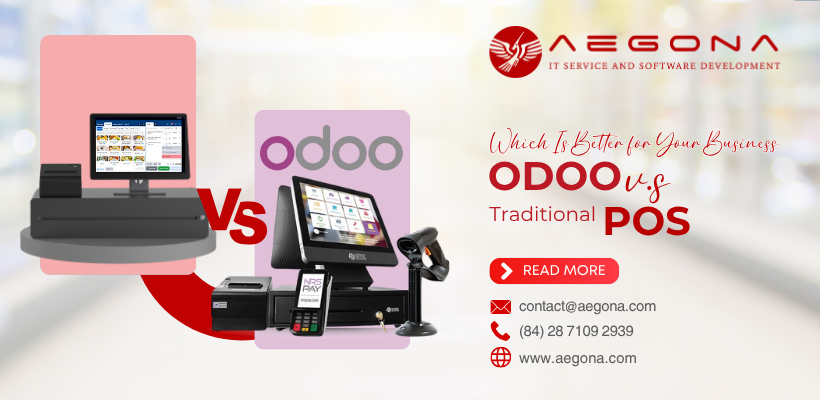
Odoo POS software is becoming an effective alternative to traditional POS systems thanks to its flexible integration capabilities and reasonable cost. Using sales management software plays an essential role in optimizing business operations. This article will help you compare Odoo software and traditional POS systems to find the most suitable option for your business.

the trends, AEGONA highlights 5 IT outsourcing trends expected to accelerate by the end of 2025 — and based on those, suggests four updated business strategies to help Vietnamese firms stay ahead of the game.
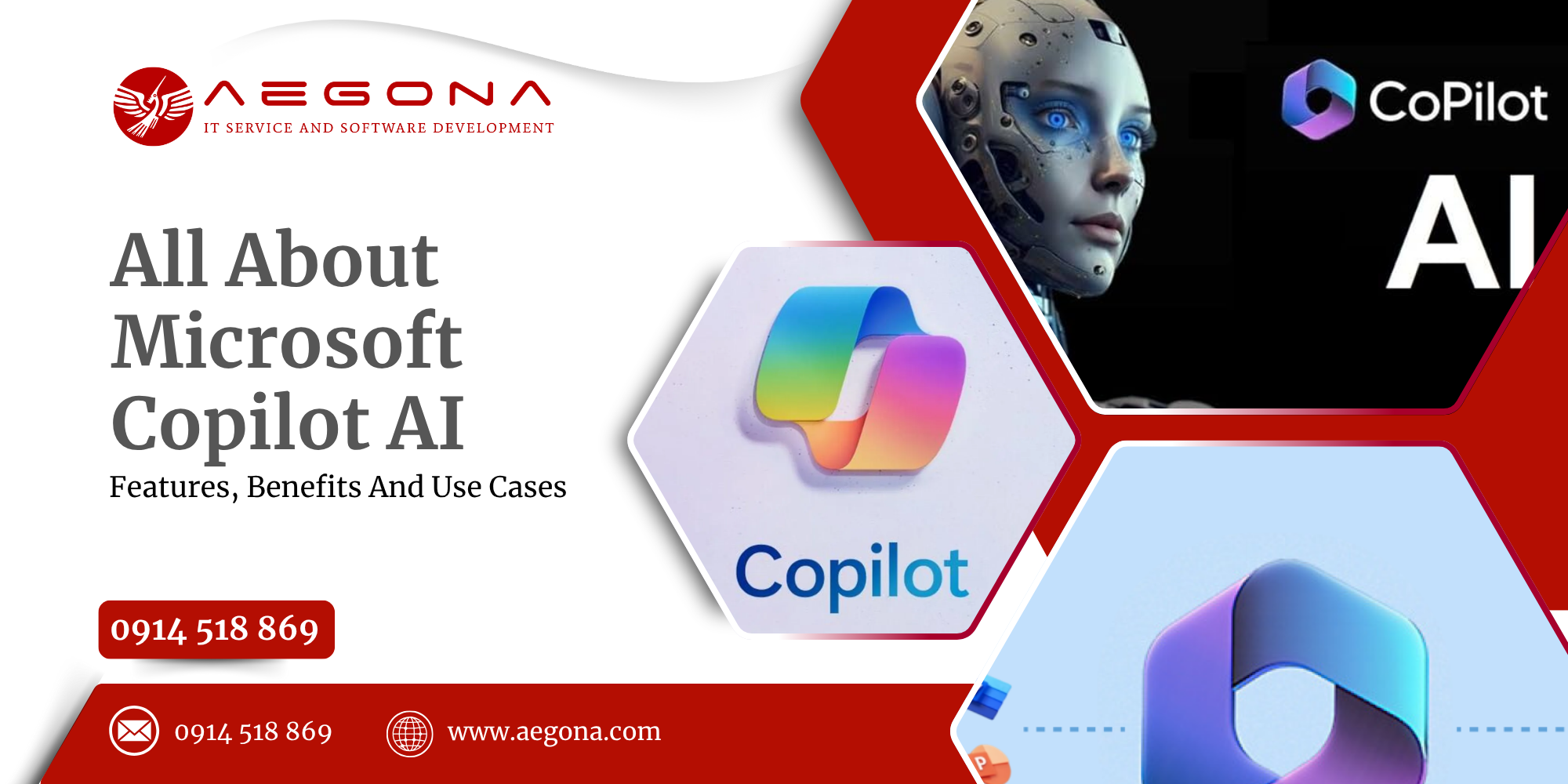
Alongside other big names riding the AI wave, Copilot AI is gaining increasing attention. It’s becoming an indispensable assistant for businesses aiming to accelerate workflows, minimize errors, and optimize operations. So, what exactly is Copilot AI? How does it work, and what benefits does it bring? Let’s explore the full picture below.
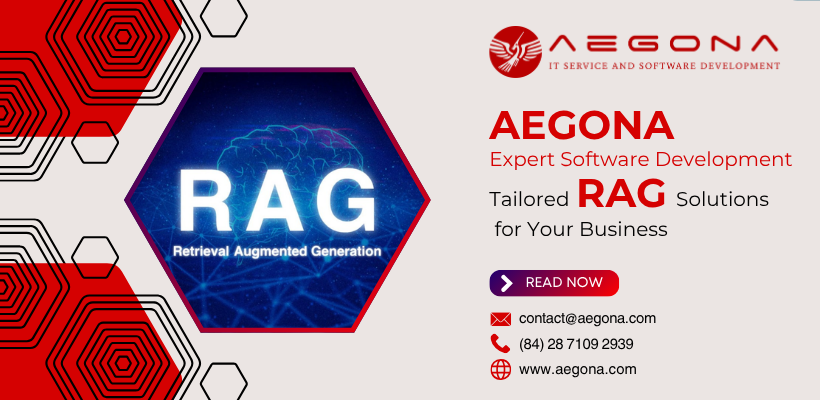
RAG LLM Solution (Retrieval-Augmented Generation) seamlessly combines data retrieval with large language models (LLMs) to enable AI systems to deliver accurate, rapid responses, creating optimal user experiences. Aegona proudly stands as a leading software development company specializing in RAG LLM solutions that empower businesses to maximize the potential of AI for sustainable growth.
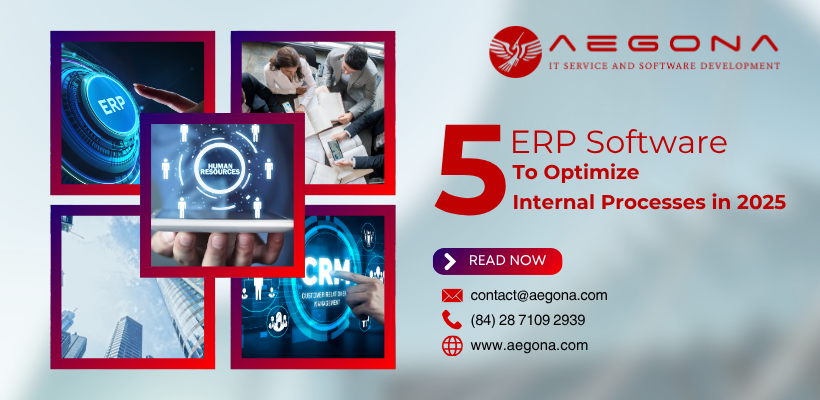
In the rapidly evolving global business landscape, the integration of Enterprise Resource Planning (ERP) software has become essential for streamlining operations, improving productivity, and supporting digital transformation. Enterprise Resource Planning (ERP) software connects core business processes, including HR, finance, sales, supply chain, and customer service, into a unified system that delivers real-time insights and operational efficiency.

AI Assistant is a powerful tool designed to help businesses automate IT processes, enhance operational efficiency, and improve customer experiences. For small and medium-sized enterprises (SMEs), adopting AI not only helps reduce costs but also creates a significant competitive advantage.

Businesses, regardless of whether they operate in the tech industry, are increasingly turning to IT outsourcing to reduce operational costs and improve efficiency. However, many are still unsure whether to go with an IT outsourcing service or hire a freelancer. Which is the best choice for your business? Let’s explore the answer with Aegona in the article below!
